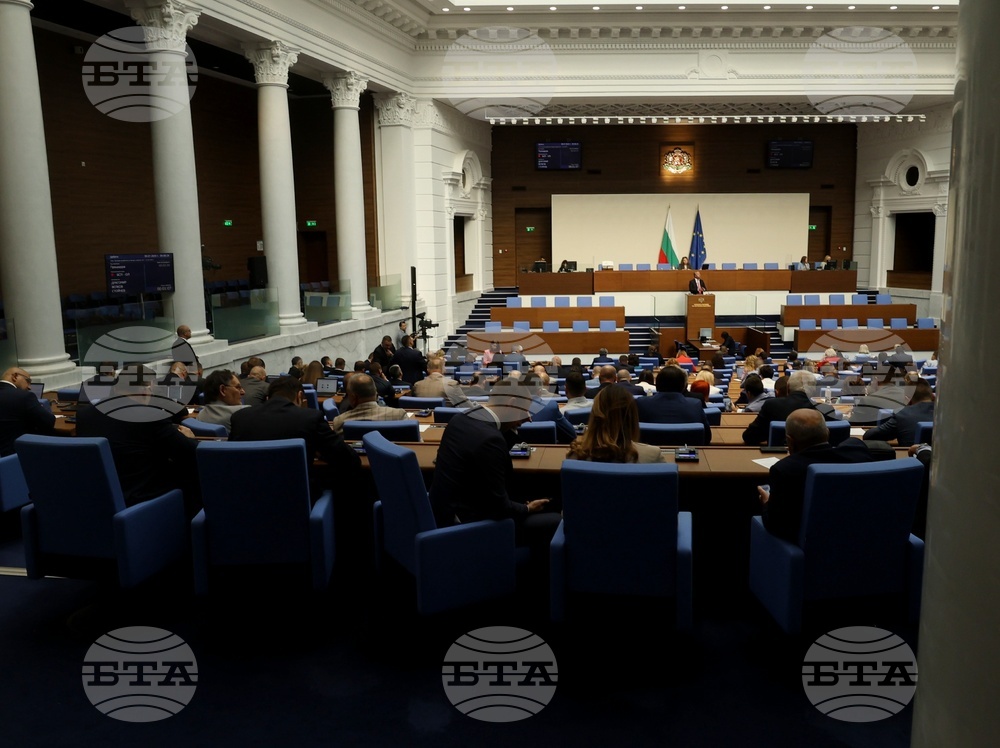site.btaParliament Approves First-Reading Amendments to Higher Education Act Aiming to Reduce University Fees


On Wednesday, the National Assembly passed at first reading amendments to the Higher Education Act aimed at preventing a surge in university fees. The changes were adopted with 148 votes in favor, 11 against, and 11 abstentions.
The legislative change is expected to reduce tuition fees for paid programmes by 25%. The bill’s sponsors from the BSP - United Left indicated that the percentage could be reconsidered between the first and second reading based on submitted opinions.
The MPs also approved a proposal to shorten the deadline for submitting written remarks between the readings from the standard seven days to three days. The measure was passed with 109 votes in favor, 54 against, and 9 abstentions.
The Committee on Education and Science reports that due to the increase in the state subsidy, which is a key factor in calculating university fees in paid programmes, the current tuition fees are comparable to or even exceed those in several universities in Western Europe and North America, far surpassing the financial capabilities of Bulgarian students and increasingly burdening foreign students as well. This renders Bulgaria a non-competitive educational destination in the global education market, states.
In a statement, BSP - United Left’s Petya Tsankova explained that with the adoption of the 2025 State Budget Act, subsidy levels were increased in line with European practices. The increased funding per state-funded student has directly contributed to the rise in tuition fees for self-funded education. The current fee levels are very high and unaffordable for many Bulgarian students. The proposed bill aims precisely to address this issue, she added.
Tsankova noted that the expected outcome is to ensure accessibility for students in paid programmes regardless of their financial means, increase university revenues through higher enrolment, and guarantee affordable higher education without compromising quality.
Tsankova also explained another amendment concerning contracts between universities, students, and employers. Currently, students can enter agreements with employers who finance their studies, and in return, the student commits to working for that employer for a set period. However, existing legislation does not regulate contract renewal with a new employer, which complicates contract execution and risks termination. The proposal introduces a mechanism for contract transfer to a new employer through a four-party agreement, increasing flexibility and fostering partnerships between universities and businesses.
Education and Science Minister Krasimir Valchev said during the debate that these two provisions need amendment. He noted that students in paid programmes make up about 7% to 8% of all students, or around 15-16,000 individuals.
Valchev explained that because state funding per student has increased, tuition fees in paid programmes have risen to levels similar to those in universities in more developed countries, which makes Bulgarian higher education less competitive financially. “Article 95, paragraph 4 needs to be fixed. Right now, it sets tuition fees at a fixed rate without allowing any flexibility. Other rules allow universities to adjust fees within certain limits, but this rule is meant to stop universities from using money meant for state-funded students to pay for self-funded students,” he added.
The Minister stressed the need to avoid cross-subsidization risks, which could lead universities to train self-funded students at minimal or zero fees, funded by money meant for state-funded students.
Valchev added that while the current proposal might need adjustments, a minimum regulation must remain to ensure universities have enough scope to compete both internationally and with private higher education institutions.
/MR/
news.modal.header
news.modal.text
